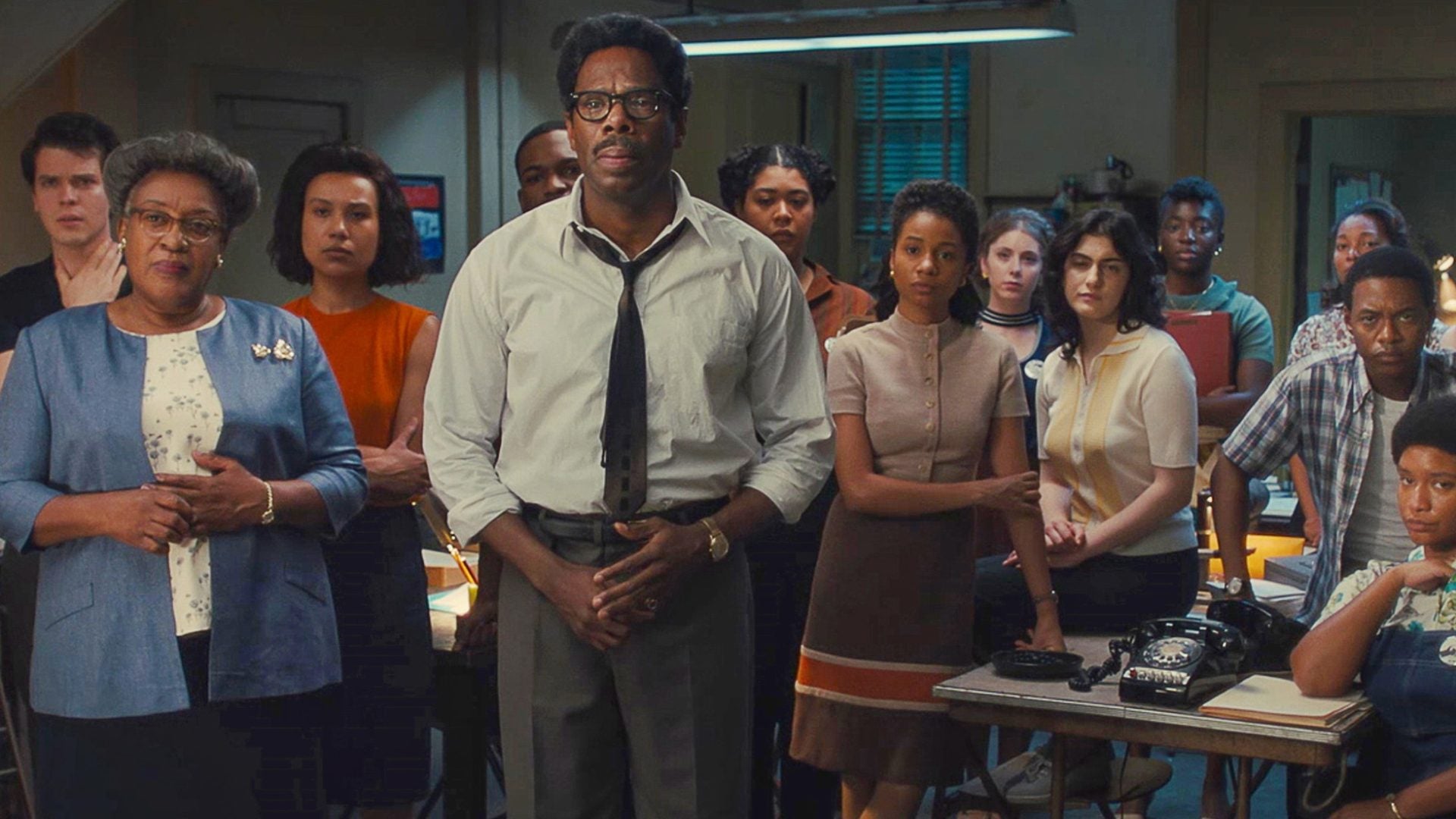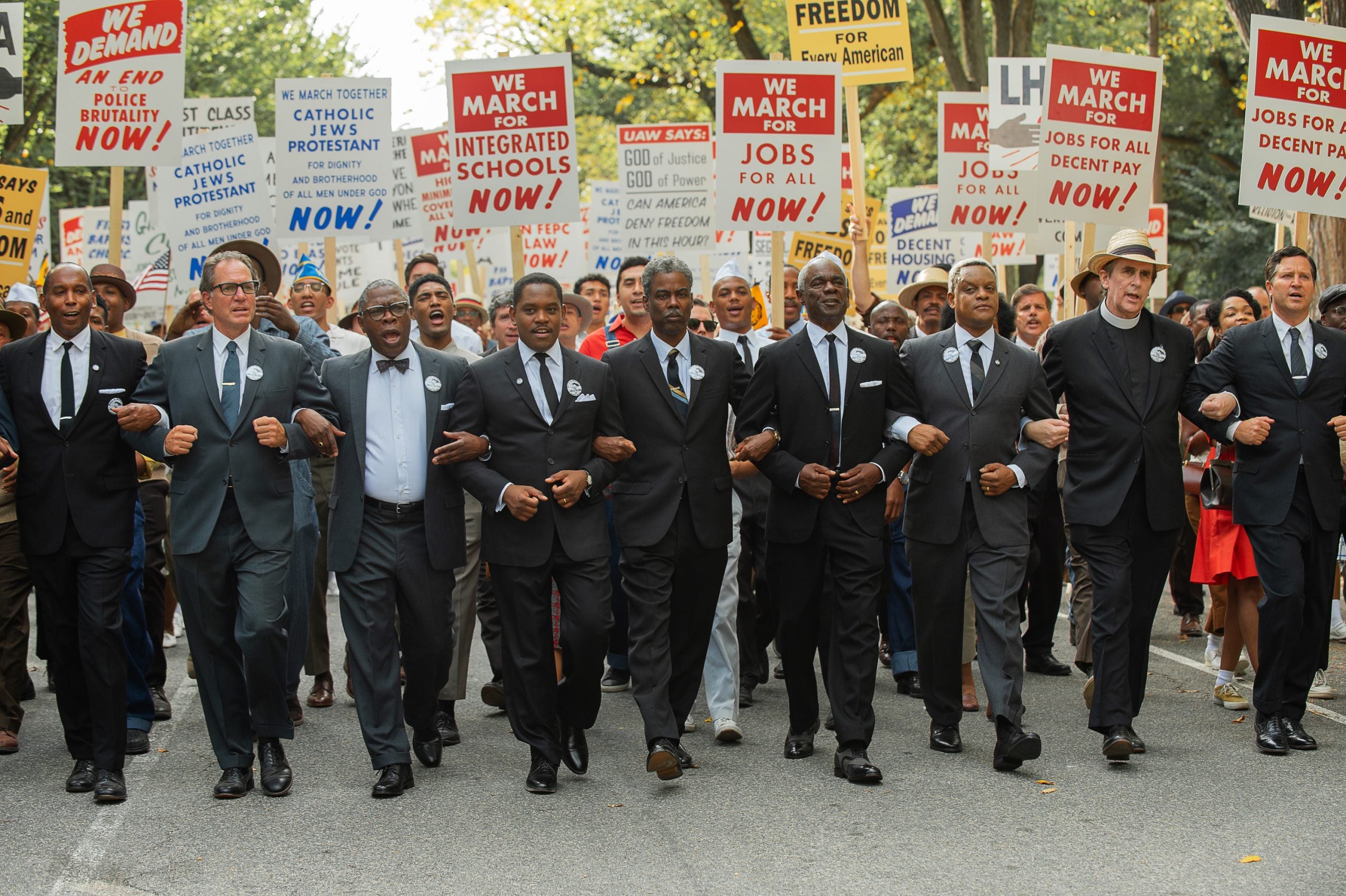
On Friday, the five-time Tony Award winning director George C. Wolfe’s RUSTIN will make its way to our television screens via Netflix, following the film’s silver screen debut in early November. The biopic gives a detailed account of the fascinating life of civil rights activist Bayard Rustin, most prominently known for his role as the organizer of the March On Washington in 1963. But perhaps why he isn’t mentioned nearly enough in the larger context of the Civil Rights Movement is due in part because he was openly homosexual.
Nonetheless, Wolfe, alongside Academy Award winning producer Bruce Cohen, and Tonia Davis from High Ground, produced this film so that he can be remembered for his efforts. Rustin is played by Colman Domingo, and he’s joined by a stellar cast which includes Chris Rock, Glynn Turman, Aml Ameen, Gus Halper, Da’Vine Joy Randolph and more.

In a recent interview with the New York Times, Wolfe talked about the importance of telling Bayard’s story. “Rustin, who was, in Wolfe’s estimation ‘about as out as a Black man could be in 1960s America,’ was largely pushed aside by civil rights leaders who feared that his sexuality would bring shame on the movement,” wrote Jenny Comita.
Born in 1912 in West Chester, Pennsylvania, Rustin’s fight for freedom didn’t begin and end with the March On Washington. He was his high school’s valedictorian, as well as a star athlete in multiple sports. Despite living in the mid-atlantic state, laws of the Jim Crow south had since infiltrated, and Rustin’s activism began, as he would organize sit-ins at public places such as movie theaters and the YMCA.
He would later be sent to prison for openly condemning World War II. Unable to curb Bayard’s persistent hunger strikes, continuous acts of insubordination, and relentless calls for the abolition of segregation within the United States penal system, the warden ultimately resorted to transferring Bayard to a different penitentiary.
Rustin stood with other activists such as the Reverend Martin Luther King Jr., Adam Clayton Powell Jr., and Ella Baker in the fight for freedom. In fact, he imagined a different world and inspired a movement in a march toward freedom, so much that he studied the non-violent and peaceful teachings of Mahatma Gandhi, which he would later share with his then-mentee and friend Dr. King.
We learn more about the layers to Rustin’s life through Domingo’s award winning portrayal of him, such as appearing on Broadway in the chorus of John Henry in 1940. In the midst of fighting the good fight for freedom, he also found time to record an album, dubbed Elizabethan Songs and Negro Spirituals, which a release notes that he was singing in “that crystalline tenor of his, both Elizabethan songs and Negro spirituals.”
RUSTIN brings forth unsung Black history that many may have been unfamilar. Through the film the directors hope to educate the masses about this trailblazer and changemaker. “‘Here was this monumental human being who changed history, and then history forgot him,’ says Wolfe, himself a gay man, who has lived in New York City since 1979. Telling stories like Rustin’s, he says, is ‘a means to share, to inform, to challenge, to confront the world.’”
Watch ‘RUSTIN’ now streaming on Netflix.




